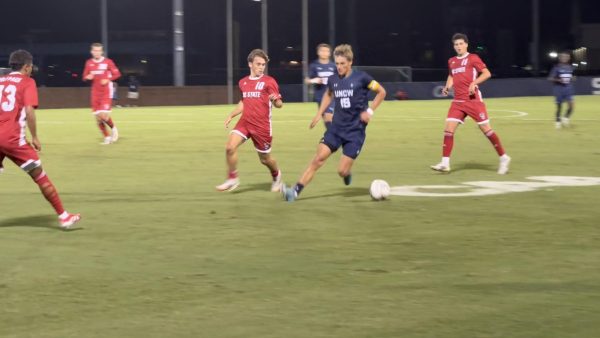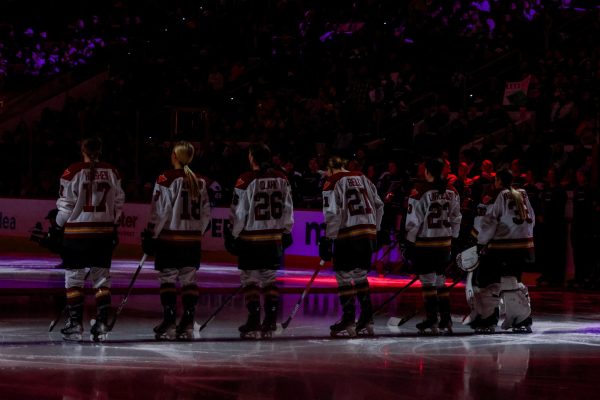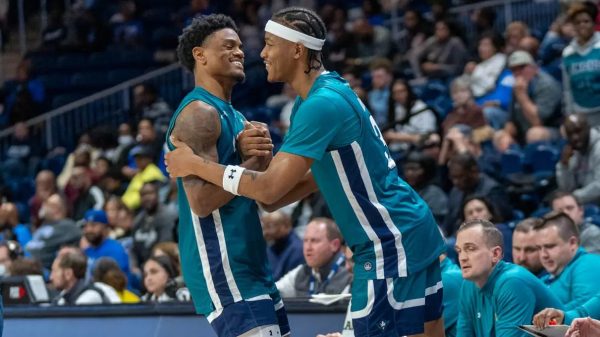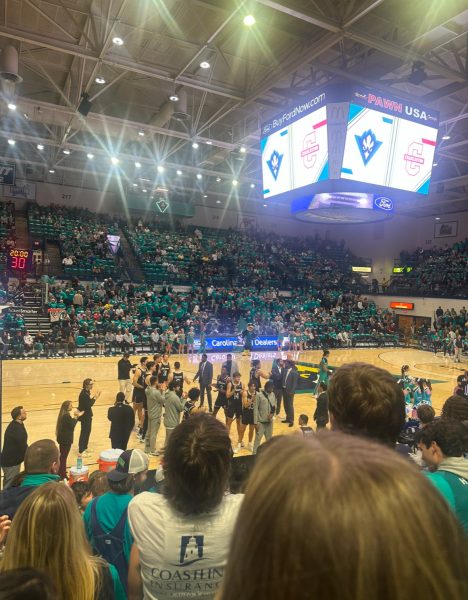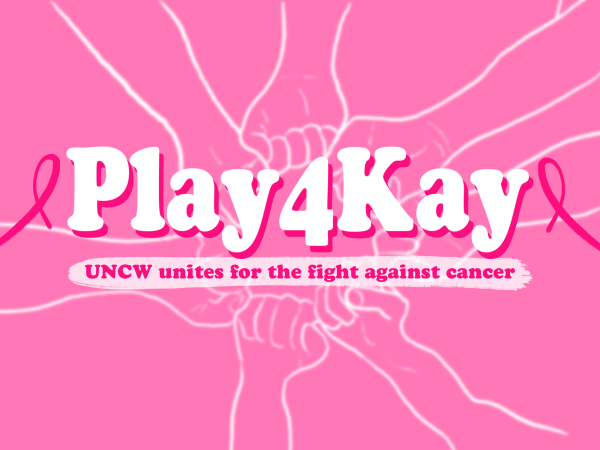Buzz Peterson Profile
Dressed in a collared shirt and khaki shorts, Buzz Peterson looks like a true ex-jock. The UNC-Wilmington men’s basketball head coach’s massive hands and daunting 6-foot-4-inch frame indicate a once promising basketball career as a McDonald’s high school All-American and highly touted college recruit.
After dominating the courts at Asheville High School, Peterson committed to play for Dean Smith, the legendary former coach of the North Carolina Tar Heels. Not only would Peterson be mentored by one of the greatest coaches in collegiate history, but he would also develop a strong bond with another future legend, Michael Jordan.
Peterson was named the 1981 Associated Press player of the year over Jordan, much to the Laney High School star’s dismay. For that reason, arguably, the greatest basketball player of all time targeted Peterson. Jordan was notorious, after all, for carrying out personal vendettas on the people who stood in his quest for greatness.
The two first met in a week-long summer basketball camp in Chapel Hill just before their senior seasons of high school. “We played pick-up a little outside on Granville courts,” Peterson said. “Great athlete, but wasn’t a great shooter, though. 6’4″ post guy, just about what he was. He tried to go outside and shoot jump shots, and he wasn’t very good.”
The assassin and his unknown target went head-to-head that week in a camp wide one-on-one competition. “I think he beat me in the semifinals or something like that,” Peterson said as he rolled his eyes.
From there, the two high school basketball stars developed a friendly yet competitive relationship. They even left camp intent on reuniting at the same college.
During weekly phone calls, Jordan continued to insist that they would play for the same university the following year. While Peterson had made official visits to North Carolina, Kentucky, Duke, Tennessee, Maryland and Clemson, Peterson remembers Jordan’s list of visits being much smaller. “The only places he had really visited were South Carolina and N.C. State,” Peterson said.
It seemed like the duo were at odds in their college basketball plans. “[Jordan] commits to [North] Carolina in November or something like that, and for two months he bugged me, ‘Hey look, we’re going to the same school,'” Peterson said. Jordan even called Peterson “roomie,” even though Peterson remained undecided as to what school he would accept a scholarship from.
“I had probably committed to Kentucky, and the next day I get to school and tell my coach [about Kentucky] and he said, ‘No, no, no we gotta sit down and talk,'” Peterson explained. “That’s when I changed my mind and said I’d look at North Carolina.”
Although Peterson insisted he is satisfied with the way his playing career turned out, he admitted a level of frustration. “I got too content at an early age in high school as a player,” he said. “I went [to North Carolina] so I could play early. I didn’t realize that the guy down here in Wilmington was going to be one of the better players of all time.” That freshman season, Jordan averaged 31.7 minutes per game, while Peterson averaged just 5.1 minutes.
Based on those statistics alone, it appears Jordan’s strategy of targeting Peterson paid off. “I always tease Michael and say, ‘I wish I had known you were targeting me. Then I would have changed my mentality or put something in your covers in bed so you’d be up all night,'” Peterson joked.
Jordan was not the only person who influenced Peterson. His Hall-of-Fame coach at UNC still holds special significance to Peterson, despite graduating 25 years ago. Peterson credits Smith as the person who helped him consider a career in coaching.
“Coach Smith’s coaching philosophy and his practices enabled me to draw interest in coaching,” Peterson said. “It was just some things we would do in practice, how when you would put those into a game perspective, it really intrigued me how they worked.”
Like most high school athletes, Peterson had dreams of playing professional basketball. “I knew around my junior year that I wasn’t going to have a pro career,” he said. “I thought coaching was going to be the route I wanted to go, and I asked coach Smith to help me out on it.”
Smith has the second most number of wins in NCAA Division 1 coaching history with 879 victories. Having that kind of legendary figure on Peterson’s resume certainly has its benefits.
But even Smith couldn’t help Peterson when he had his sights set on becoming a Seahawk in 2006. Mike Capaccio, the UNCW athletic director at the time, ignored an important call which would have helped Peterson become the Seahawks’ head coach.
“I tried to get this job in ’06, but couldn’t get an interview,” Peterson recalled. “Coach Smith tried to call the athletic director, [to recommend me] but the phone call was never returned to him.”
After a few years of waiting, Peterson has the coveted job he’s been wanting and can finally settle down in Wilmington. According to his wife, Jan, the Peterson family moved to the Port City on Aug. 13.
Although Peterson’s last job was as head coach of Appalachian State, his family stayed behind in Charlotte where he was previously the Director of Player Personnel for the Charlotte Bobcats. He is now reunited in Wilmington with his wife and children: Nicole, 18; Olivia, 16; and Rob, 12.
“It’s been a lot easier than I thought it would be, and at first I didn’t really want to do it,” Olivia Peterson said. “But it was definitely worth it. I really like the beach and where I came from up in Charlotte, the people down here are a lot nicer. They’re more, like, outgoing.”
While Peterson’s glory days of wearing jerseys and basketball shorts may be over, the head coach patrolling the sidelines in Trask Coliseum hopes he’ll experience similar success in his collared UNCW shirt and khaki shorts.


